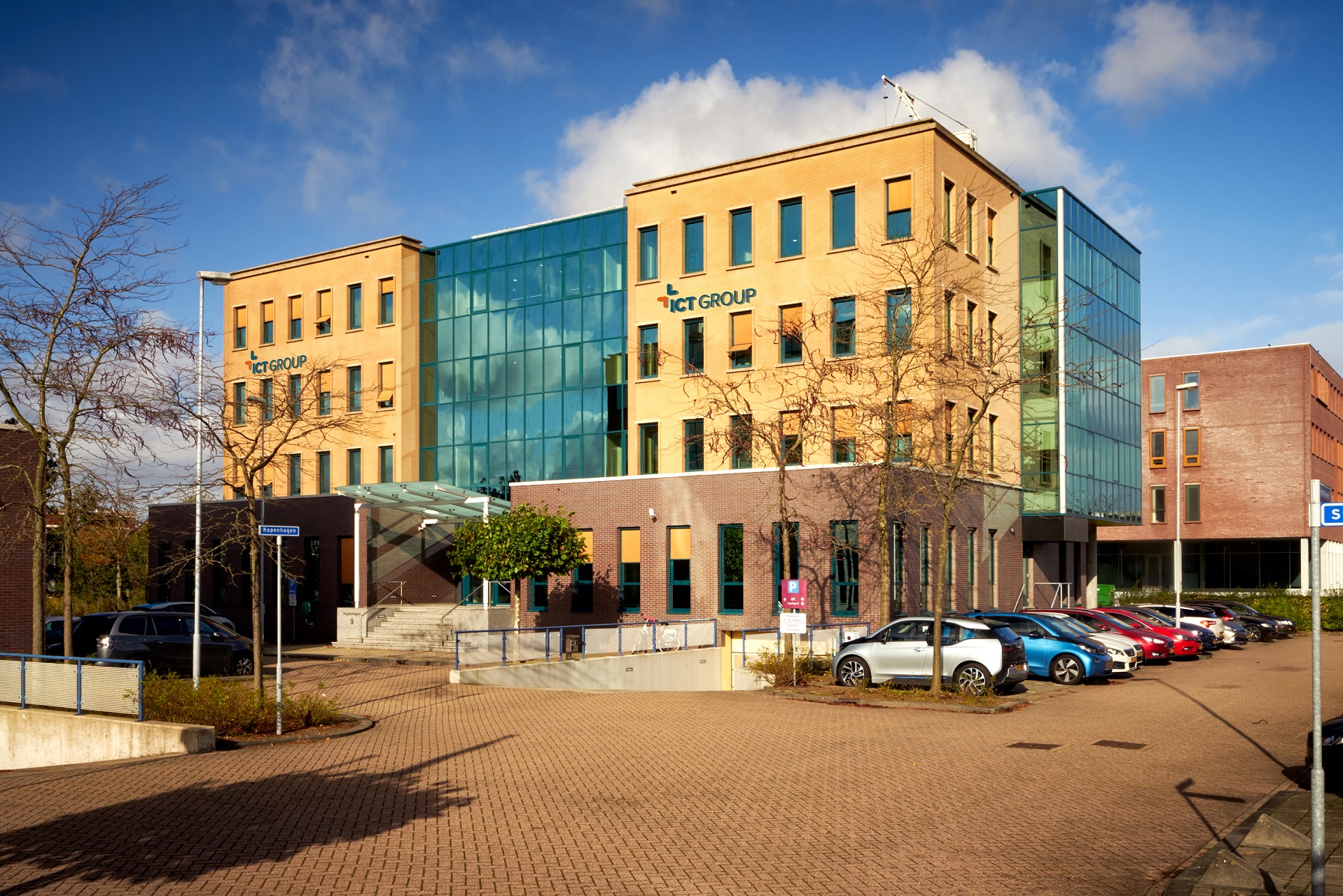
The European food and processing industry is still a worldwide leader in terms of quality, sustainability, reliability and efficiency. However, staying at the top doesn’t just happen by itself. That’s why FrieslandCampina is investing around EUR 150 million in a new state-of-the-art dairy factory in Leeuwarden.
Alleen beschikbaar in het Engels.
The factory is connected to the hilt and operates fully automatically thanks to the integration of ICT Group’s smart technology. Just two process operators will eventually be needed to process two million litres of milk into dozens of different products every single day. Welcome to the next level of dairy processing, welcome to the future of the food industry.
With annual turnover of EUR 11.1 billion, FrieslandCampina is one of the six largest dairy companies in the world. In its 140-year history, the company has achieved strong market and brand positions by making optimal use of the unique Dutch milk chain. To make sure it can continue to do that, the dairy giant defined the route2020 strategy, which has two central ambitions at its core: sustainable growth and value creation.
PAVE2, foundation for the future
One of the primary goals of the FrieslandCampina cooperative is to increase the milk yield from its member dairy farmers. From 2018, the company will achieve this in PAVE2, a brand new fully-automated factory that will process milk into dozens of evaporated milk products. ‘The new smart factory is vital to FrieslandCampina’s future,’ says Perry Elbers, PAVE2 project manager at the company. ‘The market for evaporated milk, EVAP, is still a growth market for FrieslandCampina, but we need to be incredibly efficient to remain competitive. We want to be able to produce more with less manpower.’ In other words: FrieslandCampina wants to get the most out of milk, now and in the future.
MOMS
ICT Group has been involved in the construction of the new factory from the very start, back in 2013. ‘ICT is responsible for the entire design and the implementation and realisation of the factory’s Management Operating Manufacturing System (MOMS). MOMS is a combination of the Wonderware and PCS7 packages by Siemens,’ says ICT project manager Frank Baars. He explains how the cooperation between FrieslandCampina and ICT Group started. ‘Because FrieslandCampina had never realised the smart factory concept before, they asked us to come up with a proof of concept first. Thanks to this approach, we were able to show FrieslandCampina exactly what a smart factory would look like. Then we moved on to workshops and interviews with technologists, industry operators, process operators and planners to find out what specifications and solutions were needed for the factory. After that, we started on design and construction, plus we drew up an Operator Philosophy.’
“ICT is responsible for the entire design and the implementation and realisation of the factory’s Management Operating Manufacturing System (MOMS). MOMS is a combination of the Wonderware and PCS7 packages by Siemens.”
Lynchpin in digitalisation
This first concept was then used as the basis for the development of the definitive design of MOMS. The fully-automated functionalities of MOMS include order and recipe management, tracking and tracing, logistics, inventory management, downtime analysis and quality management. ‘Our solutions actually act as the lynchpin between the automation layer above us – the order intake and processing via SAP – and the layer below us, the actual production process,’ explains Bas Hazewinkel, Business Development Manager.
Hygiene and sustainability top priorities
The result is a fully-digitalised production process that enables the fully-automated factory to process raw milk into various evaporated milk products, such as milk for coffee, tea or kids’ milk. ‘Aside from more efficient production, increasing the company’s food safety and sustainability are also important reasons to opt for the use of a smart factory,’ Elbers stresses. ‘Hygiene and sustainability are top priorities at FrieslandCampina. Reducing the number of human actions in the production process also significantly reduces the chances of contamination of (semi-finished) products. At the same time, this smart factory will handle raw materials and resources such as water, compressed air, steam and electricity much more efficiently and sustainably
More focus on quality
The fully-automated production process also enables FrieslandCampina to focus on quality and composition both earlier in the process and more effectively. ‘Our customers want an end product that always has the same quality and composition,’ says Elbers. ‘That’s important, because cow’s milk is a product that doesn’t always have the same composition. The specific composition depends, among other things, on the season and the food the cows eat. These determine the protein, fat and lactose levels. That’s why, in the new factory, we conduct more measurements earlier in the process.’ Hazewinkel adds to this: ‘Previously, samples were sent to a laboratory first, but you want to be able to make adjustments at an early stage. That’s why measurement begins at the intake of cow’s milk, which means you produce milk with the same constant quality and composition.’
Efficiency boost
Fully automating the process will result in a factory that, according to Elbers, will be about 30 to 40 percent more efficient in terms of energy consumption. The required process operators will also be a fraction of the current number. Elbers: ‘That minimal staffing also means that there will be an enormous increase in efficiency, while we are simultaneously increasing the quality of our product.’
Remaining global leaders
All of this shows that digitalisation and process automation are the future of the dairy and food industry. Elbers: ‘If we want to remain at the top of the global dairy industry, we will have to differentiate ourselves in terms of efficiency, food safety, quality and sustainability. Thanks to the imminent completion of PAVE2 and the excellent cooperation with ICT Group, we have total confidence in our ability to achieve those goals.’
FrieslandCampina gets the most out of milk with Smart Factory
Case study
